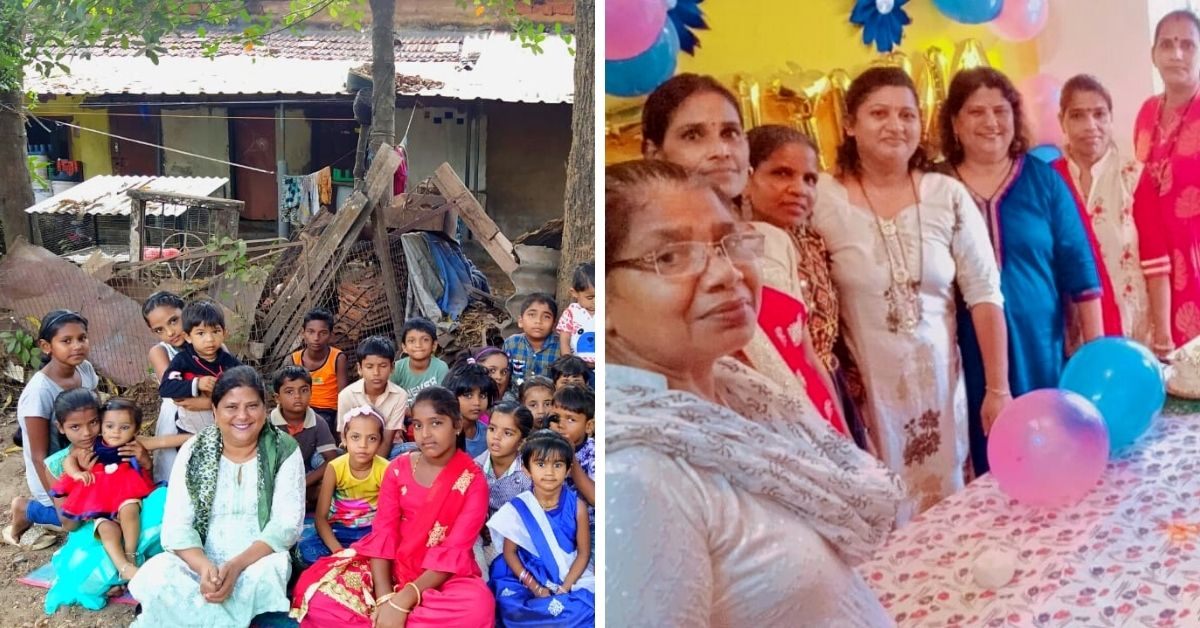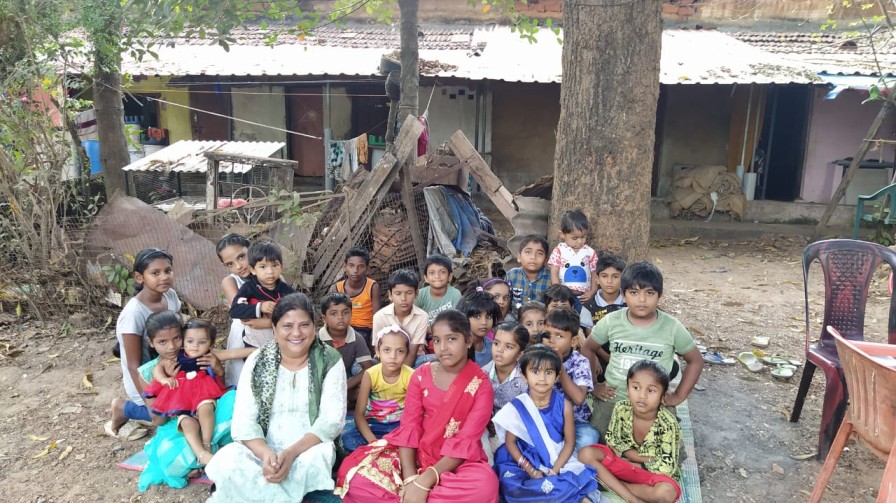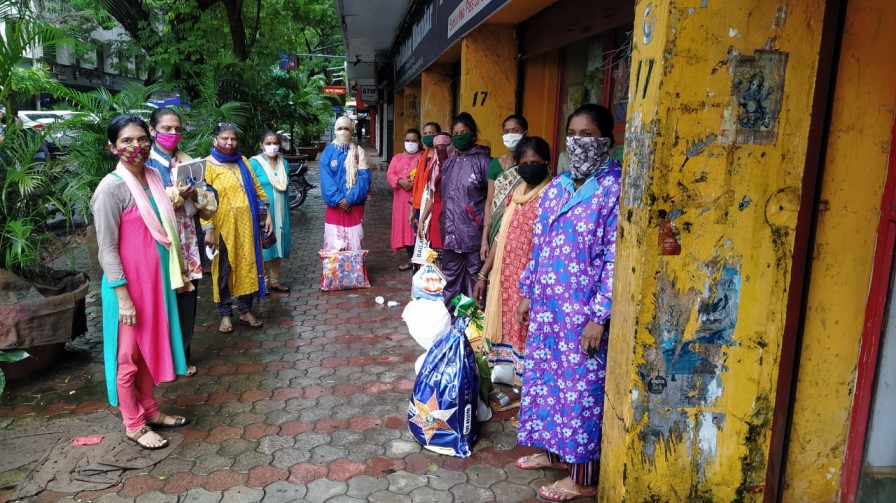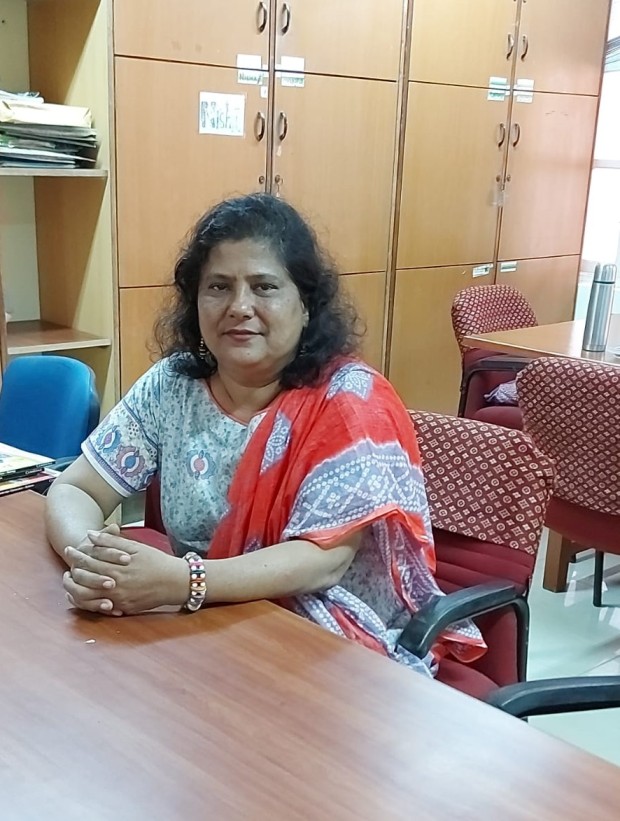Once Women’s Corpses Were Disrobed in Goa; This Teacher Changed This & So Much More
A school teacher with Sharada Mandir School, Sabina Martins has fought for 35 years through her women’s collective to bring about significant changes for women's safety in Goa - such as an all-women police station at Panjim.

Come February, and India’s perennial holiday destination, Goa, turns into one big festival, for it is ‘carnival time’. Giant, colourful floats take over the streets, with masqueraded parades and folk dances, cheer and festivities echoing throughout the state from Margao to Panjim. But the dark underbelly of carnival is witnessed by only a vulnerable few.
“They used to advertise women as sex objects with Goa being the land of ‘wine, women and song’. They would make women dress up in bikinis or short dresses on the floats. In the parade, cases of molestation of women were numerous,” Sabina Martins, 57, tells The Better India.
Sabina came together with diverse women from different fields to start Bailancho Saad in 1986. ‘Bailancho’ means women, and ‘Saad’ refers to an awakening call in Konkani.
At the time, besides the local Mahila Mandals, there were no organisations that would take up issues of sexual assault in the state.
Sabina threw herself into activism during her college days at Parvatibai Chowgule College, as a part of the ‘Progressive Students’ Union’, when there seemed to be an ever-increasing number of rapes and atrocities against women. She graduated in 1985, and with other activists she came together to form Bailancho Saad.
Today a school teacher with Sharada Mandir School, Sabina still spearheads their initiatives.
Over 35 years, through morchas, write-ups and awareness campaigns, the women’s collective has brought about significant changes – such as an all-women police station at Panjim and eradicating the custom of disrobing deceased women.
The David & Goliath Fight

Starting with just 20 women who would stand with placards at rallies and hang posters along pavements, they ignited conversations about women’s issues. Being a non-funded organisation, they first met up at gardens and parks.
Besides fighting against the commercialisation of culture at the Goa carnival—which resulted in a desultory screening committee of the floats—Sabina also dissented the blatant promotion of alcohol in the state. An alcohol advertisement violating the law was later also taken up by advocate Norma Alvares, who is affiliated with the group, in the High Court.
In 1992, some women from Zuarvada approached the group about revoking a bar license being set up in Tivrem village.
Alcoholism, Sabina says, being a prime catalyst for violence against women, the group supported the women. After a long battle, which included trips to Government offices and demonstrations, they managed to get the bar’s license revoked and an assurance from the then Chief Minister that permission would never be given for a bar in that village.
Soon, recognising the need for a temporary refuge centre for women, the group registered a trust called ‘Saad Alashiro’ in 1998 with the intention of equipping it with counsellors, legal personnel and essentials.
The same year they invested in an office in Porvorim where the women still meet every Saturday at 3.30 pm.
But raising funds was another challenge for this autonomous organisation. Sabina says, “We had to work hard for every instalment. We held donation drives for the first instalment, then sold tickets at a film festival for the second, and also held an exhibition of sales of trinkets and products made by women.”
After a decade, in 2000, North Goa finally got an all-women police station thanks to the efforts of Bailancho Saad.
Speaking on the need for an all-women police station, Sabina says, “The police were not registering cases. We realise they registered all these [women-related] cases under non-cognizable complaints. We looked up around 8,000 complaints, which was just 50 per cent of the total complaints registered at 25 police stations, and realised that many of them needed FIRs to be lodged. So, we presented a report to the Director-General of Police.”
The report was presented to the Home Ministry and Chief Minister of the state, after which the police station was authorised to be set up in place of the old medical college in Panjim. “We had no furniture. So we used the mattresses of the hospital and their medicine trolleys and cleaned the floor ourselves,” says Sabina, who networked with All India Women Conference, Centre for Women’s studies and Madgaon-based Bailancho Ekvott.
By 2012, Sabina was made convener of Aam Aurat Aadmi Against Gambling (AAAAG) to take on the giant casinos that have surreptitiously usurped the waters and land of the state. “Casinos are a huge force that started from a tiny boat and are now taking over Goa, but we continue our dissent because the cases of violence against women have increased among other consequences,” she says.
So, from helping an 80-year-old woman get back the keys to her house in 2011 to rescuing a girl who was confined to a dark room by her family for 20 years in 2017 — the group has done it all.
When Bailancho Saad encounters a victim of abuse, they contact the abuser. “If the men are not willing to come forward to resolve the issues, we tell the women to lodge a complaint at the women police station,” she says.
Today, the police station takes up matters of anti-trafficking and protection of children that works in tandem with Bailancho Saad.
Human Trafficking

Sabina says she has encountered many cases of trafficking and has rescued domestic help, who are mostly migrant labourers.
“In 1994, we took up awareness of HIV/AIDS in rural areas through a government-funded programme. That’s when we came across many women who were trafficked. A lot of them were being trafficked from South India to Goa,” she says.
They protested human rights violations at the red light area in Baina, where the National Commission was involved in public hearings.
In 2004, the redlight area was abolished, and Bailancho Saad volunteers (along with other organisations) arranged relief and ration kits from different authorities, including religious organisations. Though, some reports say that even though the cubicles have been demolished, the area is still known for illegal sex trade.
“Casinos still promote trafficking through escorts, which we have filed complaints with the police,” asserts Sabina.
“I first started work with Bailancho Saad during their AIDS awareness project, which went on for 10 years,” says Afrose Shaikh, who has been with the organisation for 25 years. “I am uneducated, but I still earned an income because of this group,” she says, adding that she received a sum of Rs 1,000 during her early years that increased to Rs 5,000.
“Understand that we are all equal in this women’s collective—educated or uneducated—all fighting for a common cause,” says Afrose.
Vaishali, a 55-year-old Dalit woman from a village in Colva says she had to fight for essentials like drinking water. “Bailancho Saad’s Sabina Martins helped me with filing applications to the Panchayat too,” she says, which helped her meet her needs.
But a few years later, she was met with another terrible fate. Her house was in the vicinity of a temple, and a tree fell on her hut. She was later rehabilitated under disaster management.
A domestic violence victim herself, she put in her application for the repair of her house, but the Panchayat refused, citing an absence of her husband’s signature. “Under the Domestic Violence Act, she was given a right to residence,” says Sabina.
When the house was broken, Vaishali says her husband didn’t want the house repaired because he didn’t want to live with her. “Now, we have filed a case with the Human Rights Commission,” says Sabina.
To support the group in their legal battles, Sabina asserts that they need better lawyers. “We have been dependent on free legal aid, which doesn’t meet our needs.”
Fighting For Dignity in Death

In certain communities, even today, women are disrobed before being cremated.
“We first got complaints from the men of these communities. A man’s wife, who died during childbirth, was disrobed before being cremated. These are mostly men at the cremation grounds. Today, with social media, there are videos of corpses of women without clothes being circulated,” says Sabina.
A few years ago, Bailancho Saad campaigned to stop this absurd practice, which got a lot of support from the same communities. “We wrote a letter to the Human Rights Commission fighting for the dignity of women in death. The commission then sent a letter to all Panchayats and crematoriums asking for reports on such instances. Only a few responded with the truth but that helped in the commission issuing an order that women are not disrobed during funeral ceremonies,” says Sabina.
However, implementation of this order at the grassroots continues to be a battle. For this, Bailancho Saad continues their awareness and dissent work.
So, to those who have little faith in the right to dissent, the women’s collective is here to prove otherwise.
“Today, we have women using our name as a threat in situations saying, ‘I will call Bailancho Saad’. This faith in our initiative is something that I consider our biggest impact,” Sabina concludes.
(Edited by Vinayak Hegde)
If you found our stories insightful, informative, or even just enjoyable, we invite you to consider making a voluntary payment to support the work we do at The Better India. Your contribution helps us continue producing quality content that educates, inspires, and drives positive change.
Choose one of the payment options below for your contribution-
By paying for the stories you value, you directly contribute to sustaining our efforts focused on making a difference in the world. Together, let’s ensure that impactful stories continue to be told and shared, enriching lives and communities alike.
Thank you for your support. Here are some frequently asked questions you might find helpful to know why you are contributing?


This story made me
-
97
-
121
-
89
-
167











